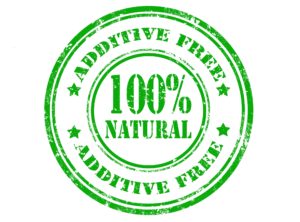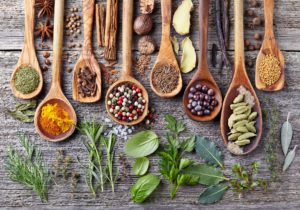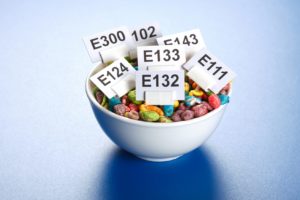The human body needs fuel in order to keep going. Food is the most important aspect of everyday living. A balanced food enables the body to run smoothly and function at its fullest. Nowadays, together with the right and left innovations where things are made easier, foods are now available in an instant.
Natural Additives used during the ancient time
Decades of years ago, salts, vinegar, and certain herbs were used to add flavour and prolong the life of food. Boiling and freezing are also ways to naturally sustain them. Today’s genre is a period where unhealthy processed foods critically outnumber unpolluted healthy foods. It is sad but true that more ¾ of shelves found on grocery stores are supplied with processed foods. These packed foods are usually thought as a save in time and money. Well, think twice! As these chemical-added foods are not as economical as they are being advertised.
 |
 |
Chemical additives are used to sustain the food for longer shelf life thus benefiting the manufacturers having more revenues. As customers, it is important to carefully inspect the food before purchasing, make sure to read first the labels.
Here are 12 of the most common chemical additives that are surely unworthy to be place on a grocery basket:
- Acesulfame Potassium – also known as Acesulfame K, is a calorie-free sugar substitute that has been widely used in foods and beverages; is 200 times sweeter than the normal sugar concealing the bitter taste especially during baking or processing foods.
- Aspartame – best known by brand names Equal, and NutraSweet, is an artificial sweetener made by synthetic chemical combination of phenylalanine, aspartic acid, and methanol; is commonly used in diet sodas, candies, and sometimes even in health supplements.
- High fructose corn soup (HFCS) – is a highly-refined artificial sweetener and preservative usually found in processed foods such as breads, cereals, salad dressings, and processed tomato based soup; is associated in causing an increase in LDL “bad” cholesterol.
- Monosodium glutamate (MSG) – also known as sodium glutamate, is a flavour-enhancing food balancing, and blending the totality of all taste commonly found in Asian cuisine, snacks, and seasonings; regular consumption can cause undesirable outcome such as headache, obesity, disorientation, and depression.
- Trans Fat – also termed as trans-fatty acid, is a food flavour and texture enhancer also used as preservative prolonging shelf life; small amount are found naturally on beef, lamb, and some dairy products while large amount are abundantly found on processed vegetable oils; increases LDL cholesterol thus increases the risk of heart diseases.
- Food Dyes – also known as food colouring, is an artificial substance that impart in food and drink colour often found in processed food and drink; most commonly used artificial colouring are red, yellow, and blue; is associated as cancer contributing factor and concluded by researchers to cause adverse effects on children’s behaviour.
- Sodium Sulfite – is a soluble sodium salt of sulfurous acid used as preservative usually found in processed food and fermented drink such as wine; is known to cause allergic reaction and increase asthma symptoms
- Sodium Nitrite – is a known preservative, food flavour enhancer, and artificial colour found on food especially in meat and fish products such as bacon, hotdog, and smoked fish; high amount of consumption can be toxic to human causing adverse reaction on metabolism, and increasing the risk of developing cancer.
- Butylated Hydroxyanisole (BHA) – is a synthetic preservative usually added on edible fat-containing food for its antioxidant property which causes cancer-causing compound in the body; is believed to be toxic to human causing allergic reaction and hormonal system disruption
- Sulfur Dioxide – is a colourless pungent toxic gas used as preservative for dried fruits, vinegar, and fruit juices; is also used on raw fruits and vegetables, and wine making for its antimicrobial action; is harmful to environment and human causing bronchial problems especially on asthmatic patients, and even anaphylactic shock leading to death.
- Potassium Bromate – is an oxidizing agent usually used in flour, strengthening and increasing the volume of the dough; can be harmful to human causing nephrotoxicity and cancer.
- Potassium Sorbate – is a preservative used to prevent growth of mold in food and drink such as cheese, dried meat, yogurt, and wine; is found to be toxic to lymphocytes causing adverse reaction to human immunity.
-


A day full of preservatives is a day of danger, putting oneself on risks of entering a condition that can result to serious health problems. Still nothing beats cooking with all-natural food additives and herbs; taste wise; health wise; and money wise.

Hi, this is a comment.
To delete a comment, just log in and view the post's comments. There you will have the option to edit or delete them.